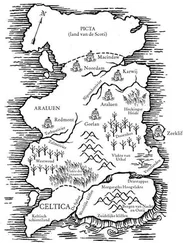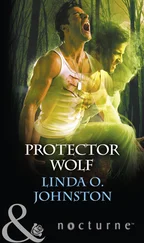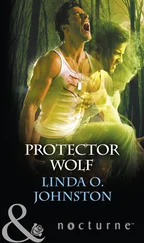“Now, now,” said Vicky.
“He likes to play video games but he hasn’t got any sensation in the pads of his fingers anymore so he can’t feel them pressing on the buttons, and he says it feels weird, so the games aren’t as fun. The first thing he thought of when his girlfriend died was what she’d want him to do, how to keep the memory of her happy in his imagination. What a sweet kid,” I said. My face stung. “They met in junior high school band; she played the flute, I guess, and he was in the drum section, and they went to the movies together a lot.” I wanted to give Lance a better biography, but all l really had at the ready were some bare bits and details: the parts he hadn’t been able to stop himself from mentioning, the pieces of himself that flew from him naturally like sparks from a torch.
“Well, he sounds like a nice boy,” said Vicky, straightening my collar for me. The sun was cresting the cypresses that line the walkway, and a clean warm light had filled the room. It’s hard not to feel good in that kind of light. I nodded, and I looked at her and felt such gratitude to have her around. I was happy to know her in my small, formal, dependent way. And I felt a ravenous grief for nice boys who are too stupid to take care of themselves, and too dumb to remember to check the surrounding brush for snakes before settling down to sleep for the night.
They freeze up when I open the door. You can see it happen. They’re in a sort of imagined forward motion, ready to launch into whatever pitch they’ve come to give, and then the sight of me arrests them mid-swing. Wielding this kind of power feels different from what I imagine people who crave power think they’ll get if they ever get their wish. Because this … this can’t be what people want. Or maybe it is, and I just don’t really understand how power works, I think sometimes. But then I think about it some more, and I think: Yes, I do know something about what power is, how it works. What it’s like. I do know.
“Sean Phillips?” is what the process server said, already holding up the summons in front of his face like a shield. He was in his early twenties. I don’t think anyone had warned him about adjusting his expectations. Probably he was working through a whole sheaf of cases, nameless after a few hours on the clock, one indistinguishable from the next. I assume that you end up seeing all sorts of people in the course of your workday in a job like this; in any job, really. But “all sorts of people,” in most lives, is a spectrum with fairly narrow extremes. If your job involves knocking on doors, your parameters might begin on the far end with a man who answers his motel room door naked and dripping wet, and on the other side you might find some guy who tries to tip you when you leave. If you go out on religious work, I imagine you learn early that some people are glad to see you and other people are mad. I am different; I’m outside all that. People don’t expect to meet me. They don’t know they have expectations, but I show them by counterexample what their expectations were. I had old music from my teenage years playing loud on the stereo when the process server found himself having to decide whether to look at me or not.
I always wonder if people are afraid of me because they think I’ll do something: press my face up against them, or start making funny noises. I am always a little tempted to satisfy their fears. But I never do it; it would feel wrong; it would be wrong. I don’t need to make myself feel better by frightening people or making them squirm. When I was a child, I dreamed of powers like these, but I no longer have those dreams. I am free.
I said, “Sean Phillips last time I checked,” as clearly and lightly as I could, and I grabbed the pen from his outstretched hand. I heard him say “If you could just sign here,” but I was already ahead of him. I pictured the scene between us, how it couldn’t have been an easy combination: the door opening, me there, the loud, unpleasant music blaring away and forcing him to raise his voice for his one big line. So I signed quickly, and when he’d left, I read the summons. And then I read it again. That’s what you do when something like this starts to happen in your life: you check and recheck to see if it’s real. And you start talking out loud to yourself, trying to explain it, seeing if you really understand. You then get angry. I did, anyway; I wanted to knock something over. Old feelings, long pressed down to where they couldn’t do any more harm, shed weight and rose inside me like vapor. They felt, to me, the way ghosts are supposed to look. They came up through the center of my body until I felt them at the back of my throat, tendriling out onto my tongue from way down in there. But they did not escape. I pressed the nail of my right index finger into the pad of my thumb rhythmically and focused on the dull sharpness bearing down while waiting for the feeling to ease.
Dear Freak,
With the internet now we can find out all about you so we don’t have to write to your PO box. We know where you live. So don’t think you are safe because you aren’t safe from the people who loved Lance and Carrie and took their lifes SERIOUSLY and you will never be safe. Die in a hole, X.
There’d been bad news in the mail all week, but mixed in with it there’d been regular mail, plain mail: Stray moves from early Trace denizens, subscription renewals. Insurance statements I didn’t usually read because they always said the same thing: Your coverage continues at the level of care from the preceding period; please advise us immediately of any change in status, etcetera. Month after month. A few bills. And junk mail. Vitamin catalogs. Supplements. None of it could numb the live wires I kept grabbing every other time I split an envelope open: Carrie dead. Lance sure to lose a foot, maybe both, maybe a hand, maybe both of those, too. Large sections of his face blackened by frostbite. His fever rendering him delirious. Fund-raisers at their parents’ churches, flyers for bake sales, clippings from Florida papers with names circled or underlined twice. And Lance and Carrie’s friends, writing to tell me either that they blamed me for what had happened, or else that they didn’t and wouldn’t no matter what anyone said; or just to tell me about what their friends were like, how they’d been in real life, how painful it was to know that all that was changed. And now this: a single page, a form, advising me in dry language that a hearing was to be held to determine where fault, if any, rested in the matter of, etcetera, wherefore my presence was required, and could be compelled if not given voluntarily, etcetera, wherefore the recipient should contact, at the following number without delay, etcetera.
My parents arranged all kinds of meetings with people back when they were running around looking for answers. I don’t remember them much, aside from a stray scene or two that stick with me like memorable sequences from otherwise forgotten films. These few short clips are interesting to me, and I can stand them now, but there was a time when I blocked them out. People trying to help you when you’re past help are raw and helpless. Nobody wins: you get nothing; they feel worse. I mainly remember the feeling among us when the hearings and meetings were finally all over: Dad growing distant, detached. Mom finding the quiet mask from which her face would never fully emerge again.
They held on to their anger until after they’d exhausted their leads; then it was gone. I don’t know what they replaced it with. Something, I figure. I feel guilt, and sympathy, and shame, and I share it with them in letters I don’t mail, because the people who need to read those letters are also gone. They vanished into a meeting room one day and were never seen again.
Читать дальше












